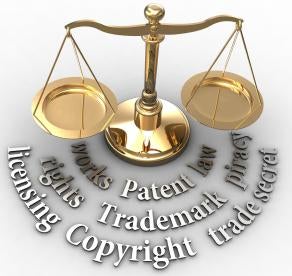In a landmark decision delivered recently by the UK Supreme Court, Professor Shanks, an inventor, was awarded £2 million in compensation for a device he created. Professor Shanks developed the technology while he was employed by a Unilever company and the invention has proved lucrative for Unilever in many jurisdictions.
Background
In the early 1980s, while employed by a subsidiary of global consumer goods company, Unilever, Professor Shanks invented a device for measuring the concentration of glucose in blood or urine. Unilever obtained several patents citing Professor Shanks as the inventor in various territories around the world, including a European patent. Since the invention was developed during the course of his employment, and his duties specifically included invention, Professor Shanks accepted that pursuant to section 39 of the Patents Act 1977 (the “Patents Act”), Unilever was automatically the owner of the invention, as his employer.
However, Professor Shanks argued that, pursuant to section 40 of the Patents Act, he was entitled to a “fair share” of the benefit in compensation due to the “outstanding benefit” of his invention. Unilever disagreed.
Decisions of the lower courts
In 2006, Professor Shanks applied to the UK Intellectual Property Office, for a “fair share” of Unilever’s earnings from the patents, which over time, equated to approximately £24 million (approximately US$ 31 million). Professor Shanks’ claim failed before the UK IPO. He also lost his appeals to the High Court and the Court of Appeal.
Professor Shanks then appealed to the UK’s highest judicial authority, the Supreme Court.
Supreme Court decision
In overturning the decisions of each of the previous courts, the Supreme Court unanimously found that:
-
To assess whether the benefit of the patent was “outstanding”, the court first has to look at the “benefit”. The “benefit” is the financial benefit, which the actual employer has obtained (or can be reasonably expected to obtain) from the patents, after deducting costs. “Outstanding” means exceptional or stand out (in money terms or money’s worth).
-
As is common in a large international corporate group, Professor Shanks’ employer was a subsidiary, and this assigned the patent to other group companies for nominal consideration. However, in reality, the research undertaken by his employer was used for the benefit of the whole group. In working out whether an invention is of “outstanding benefit”, Lord Kitchin said that the correct assessment requires the court:
(i) to look at how a patent benefits the whole group; and
(ii) compare this with the benefits derived by the group from other patents for inventions arising from the research carried out by that company.
This enables a ‘like for like’ comparison.
-
The lower courts had erred in comparing the benefit Professor Shanks’ patents brought to the Unilever group with the group’s overall profits, and had wrongly concluded that the earnings from the patents were dwarfed and insignificant and not an “outstanding benefit”. Although the size and nature of the business must be considered, there was no justification for a comparison between the revenue generated by the patent and the overall profitability of the business. An employer should never be “too big to pay.”
-
Fairness also demanded that Professor Shanks’ award of compensation should reflect the detrimental effect of time on the value of money (i.e. the court held that there should be an uplift for inflation of 2.8%, the average rate as calculated by the Bank of England).
-
A “fair share” of the £24 million Unilever derived in benefit from the patented invention Professor Shanks developed was 5%. This was on the basis that invention was part of Professor Shanks’ normal duties, and Unilever inputted into the revenue stream by negotiating licence deals for the patents. Although Unilever only made a relatively small effort to commercialise the invention and exploited them without real risk to itself, 5% was a fair rate and equated to £2 million for Professor Shanks.
What does this mean for employers?
The decision in Shanks v Unilever does not change English law. However, it now makes it slightly easier for employees to obtain compensation for inventions they have come up with, although the bar for demonstrating “outstanding benefit” remains high. The decision may well encourage more employee inventors to pursue compensation claims for inventions. That said, due to the clarity provided by the judgment, such claims should be resolved more quickly.
The statutory right of employee inventors to receive compensation under section 40 of the Patents Act cannot be excluded by contract e.g. in an employment contract. Therefore, in order to protect employers against successful claims for compensation, businesses should consider introducing patent incentive schemes that provide a suitable level of monetary reward to employee inventors.
A change in the Patents Act in 2004 also makes it easier for employees to claim compensation for their inventions (as the benefit does not necessarily have to derive from the patents themselves). Accordingly, employers should also act to ensure that they have a clear record of exactly who has invented what and when. Employment contracts and internal policies should be careful to require employees to disclose inventions immediately.





 i
i


